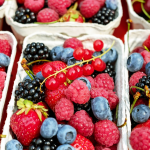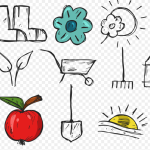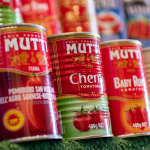There is no question that health, fitness, and anti-aging issues dominate our culture and have risen to a cult level of obsession for millions of people who have turned the simple task of feeding and taking care of themselves into a religious obsession.
Food & Nutrition
“Consumers increasingly want to make decisions on the environmental sustainability of foods.” Are you one of these consumers? Can your food choices sustain your health and that of the planet? A new study considers the “environmental impact” of food products. As it turns out, not all foods that sustain your health will sustain the planet – we will not eat our way out of climate change.
We've been told for decades that less is more when it comes to salt in the diet. Recent research has thrown that conclusion into doubt. Can we identify children who may be at risk for SIDS before it suddenly and tragically strikes?
The FDA has released the latest results from its Pesticide Residue Monitoring Program. Activist groups are scrambling to dismiss the report.
According to our “friends” at the EWG, “American consumers spent a total of $20.4 billion on organic fruits and vegetables, fresh and frozen combined, in 2020, making organic produce now 15 percent of all fruits and vegetables sold in the U.S.” [1] So perhaps we might begin to call it Big Organic, it certainly is showing the same type of market forces as conventional Big Ag. Don’t let the marketing fool you; organic is no longer just those family farms and farmers, as a new study in Nature reports.
Comedian Bill Maher is in trouble after attacking the fat-acceptance movement on his show last week. Not only was the segment hilarious, but it highlighted an important fact many people would rather not discuss: social-justice activists are rewriting science to protect their ideological commitments.
Sri Lanka's ban on imported synthetic fertilizers and pesticides devastated the country's farm sector, causing mass food shortages that helped drive the president out of office—and out of the country. ACSH director of bio-sciences Cameron English appeared on the Lars Larson show to explain the situation in more detail.
Rep. Alexandria Ocasio-Cortez recently came out in support of "regenerative" farming as a solution to climate change. There is little evidence to justify her advocacy.
Dr. Chuck Dinerstein and Cameron English recently joined Dr. Jay Lehr and Tom Harris on The Other Side of the Story radio show to discuss the controversial claim that "obesity acceptance is ruining our health." Is that true, or has the public health establishment actually exaggerated the dangers of being overweight?
The activist group GM has attacked gene-edited crops by alleging that they're designed to increase pesticide use. Is there any truth to this allegation? With millions of COVID vaccine doses administered since December 2020, what have we learned about the risks associated with the shots?
As part of a healthy diet, US federal guidelines recommend that adults eat 1.5 to 2 cups of fruit and 2 to 3 cups of vegetables per day. The Centers for Disease Control and Prevention note that only 1 out of 10 Americans eat enough of these foods containing essential vitamins, minerals, and fiber. There can be barriers to consumption. Fresh fruits and vegetables are pricey and have limited availability in some communities. They also have short shelf lives. Frozen and canned foods are more accessible and can be stored longer. Are these options to fresh just as nutritious?
The Non-GMO Project recently reassured its Twitter followers that seedless watermelon is not genetically modified. The only problem is that this delicious summer treat is a "GMO"—and it undermines the project's dubious business model.











